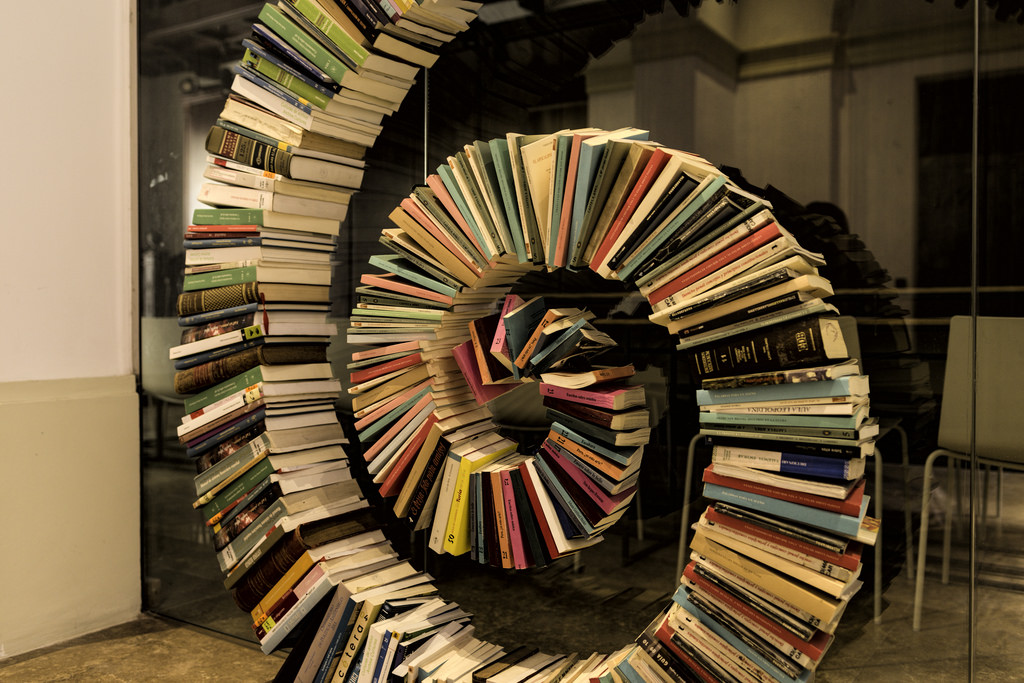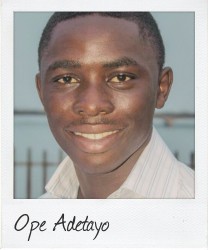“Society includes a plurality of beliefs”
January 15th, 2018Societies are defined by beliefs that are intrinsic to the people, writes Ope Adetayo, 19, a Commonwealth Correspondent from Lagos, Nigeria. Because human existence cannot be isolated from religious influence, the question is how differing beliefs influence law and co-exist within society.
Every society tends to preserve the absolutes of its beliefs. Since a country is a reflection of the society that produces it, a country derives its mores and norms from the fundamental cultural – and religious – givens.
In the face of a metamorphosed world where globalisation has conflated cultures, ideas and peoples, singularity – or homogeneity – of beliefs becomes next to impossible.
Each human, as enshrined in the United Nations Convention of Human Rights and related laws, has an unfettered right to his or her religious persuasion without being regulated in that choice and freedom. This is motivated by the convention that everyone has the right to freedom of religion.
Religions and their immutable doctrines are enforced to ensure strict adherence. This is the situation that has ensured conflicts between adherents of religions throughout the history of mankind. It also lays the groundwork for religious intolerance that militates against complete human integration, which is a precondition for a peaceful world where everyone lives without fear of victimisation.
Throughout the world, discrimination in religious sentiment subsists. It can drive a cognitive bias that inspires injustice and violence against other people who are unsympathetic to the predominant ideas of worship. No religion in the world is free from some number of fanatics who are ready to upset the peace of multi-religious cohabitation. This forms hatred and deepens the chasm that separates people of different faiths.
Nigeria, being a colonial invention comprised of different tribes and ethnic groups, consequently becomes a religiously plural state. This plurality substantiates the constitutional necessity to give government and governance a secular complexion. However, the spectre of violence and wanton destruction occasioned by religious intolerance haunts the image of Nigerian society as the ugly realities of depredations – of lives, property and mental stability for the witnesses and survivors – surface every now and then.
The moral evolution of Nigerian society has not graduated to the level that offers individuals the right to exercise the injunctions of one’s belief – or disbelief! – without conscious or oblique threats. This issue demands a dialectic approach because the Nigerian situation is a strange one, a twin problem: First, there is the deeply ingrained religion-versus-religion psyche that stunts our collective progress. It nullifies our identity as a political state rather than as unorganised religious groups in conflict with one another. Second, there is this religion-versus-secularity standoff which threatens the foundation of the nation, which gives regard to the freedom of everyone to practice as they wish without encroaching on the right of others and without hoisting one religion above the other.
I will try to succinctly give a picture of the two situations. The first problem is applicable to all societies in the world and takes its root in human history from time immemorial. Religions clash in the battle for supremacy and this inevitable clash – inevitable because we fail to reconcile the religions – leaves us in perpetual search for peace. Nigeria is no exception; in fact, we have had our fair share of the troubles with the rise of devastating Boko Haram insurgency and other constant religion-motivated crises. Nigerians do not put this behind, because we find the expression of our identity in religion and not in humanity. Nigeria as a country is still stuck in this scourge because we are naturally fundamentalist about our beliefs, without the consideration of breathing space for others who hold different opinions of belief.
It gets worse every day, and that is the alarming assessment of this situation. We must realise that these religions must bring peace; otherwise we have no need for them. And for them to bring peace, we must fine-tune our ideological stance and pave the way for collectivity.
The second situation is less grim and involves less bloodshed, but it is also dangerous in itself. We all attack the country and its progress when we choose to put religion above our collectivity, because it brings about a perception that we are rather unified than united. It vitiates public stability and engenders discord. Nigeria is a secular state owing to the plurality of beliefs, and to uphold its existence it must remain so without succumbing to those who wish to destroy it.
We all want to infiltrate public institutions with our religions while we forget that Nigeria, as a state, has no religion; which is another way to say it is not theocratic.
Happy New Year!
Reach me on Twitter @Opeadetayo1
photo credit: El s@lmón Libros via photopin (license)
…………………………………………………………………………………………………………………
About me: I am Ope Adetayo, an undergraduate of English at the University of Ilorin and a recipient of ‘Gold’ certificate at the 2017 Royal Commonwealth Society Awards for the Commonwealth Essay Competition. I enjoy indelible interest in journalism and literary writing, and am the author of Age and Blood, a play. I am passionate about politics and literature, and they are mediums where I propagate my ideas for a better society.
…………………………………………………………………………………………………………………
Opinions expressed in this article are those of the author and do not necessarily represent the views of the Commonwealth Youth Programme. Articles are published in a spirit of dialogue, respect and understanding. If you disagree, why not submit a response?
To learn more about becoming a Commonwealth Correspondent please visit: http://www.yourcommonwealth.org/submit-articles/
…………………………………………………………………………………………………………………





